How To Get Rid Of Oily Skin: 9 Simple Remedies That Work
Remove excess sebum without causing any irritation on the skin in natural ways.

Image: Shutterstock
If you struggle with oily skin every day, you know it is another ordeal altogether. Oily skin develops due to the overproduction of sebum (oil) in the skin. The good news is you can try some natural remedies to get rid of oily skin in the comfort of your home. The right amount of sebum keeps your skin moisturized, and excess sebum can make your face look greasy and dull. This article explores some of the causes and tips you can try to prevent developing oily skin. Scroll down.

In This Article
Why Is My Skin So Oily?
This is one of the first questions asked by a majority of people who have extremely oily skin. Oily skin is a result of overly active sebaceous glands in some individuals. These glands secrete a waxy or oily substance called sebum. While sebum is vital for keeping your skin protected, healthy, and hydrated, too much of it can lead to oily skin and clogged pores. This may eventually result in acne.
Many factors can cause your skin to produce more sebum and become oily. They are discussed right below.
Key Takeaways
- The common causes of oily skin are age, climate, using the wrong skincare products, or skipping the moisturizer.
- Clogged or large pores, blackheads, whiteheads, and shine on the skin indicate that you have oily skin.
- You can use oatmeal, lemon, honey, and aloe vera to combat oily skin.
- If you have oily skin, you should use a pH-balanced toner daily and switch to water-based makeup products to keep oil in control.
What Causes Oily Skin?
Some common causes of oily skin are:
- Genetics – Oily skin usually runs in families. If either of your parents has had a history of oily skin, your skin is also quite likely to be oily.
- Age – Adolescents and young adults are known to have oilier skin than the older lot. While this doesn’t mean that your skin will become completely oil-free as you age, it will definitely become less oily. Also, oily skin can actually help in slowing down your skin’s aging as it keeps the skin moisturized as compared those with dry skin.
- Climate – If the climate of the place where you live in is hot and humid, your skin is likely to produce more oil. This is why your skin is oilier in summers as compared to the winters.
- Enlarged Pores – Aging, acne breakouts, and weight fluctuations can cause your skin pores to become enlarged. Enlarged pores can make your skin produce more oil. Most individuals with oily skin have large skin pores.
- Use Of Wrong Skin Care Products – Some individuals may mistake their combination skin for dry skin and use a lot of heavy creams meant for the latter. This can cause the skin to retain more oil, possibly leading to clogged pores and your skin breaks out even more. Nowadays, there are specific skin care products available for oily skin, so choose yours wisely.
- Wrong Skin Care Routine – Those with oily skin tend to wash their face at the drop of a hat. However, doing this will only give your skin temporary relief. It may, in fact, cause your skin to produce even more oil to make up for the loss.
- Skipping Your Moisturizer – Skipping your moisturizer can make your skin dry or oilier faster. Hence, use a light-weight, water-based moisturizer if you have oily skin.
- Stress
Any of the above factors or even a combination of them could be contributing to your oily skin.
The common signs and symptoms that characterize oily skin are discussed below.
Signs And Symptoms
The signs and symptoms associated with oily skin include:
- Greasiness or shine on the face
- Large pores on the skin of the face
- Skin that appears thick or rough
- Occasional or persistently occurring pimples
- Clogged pores
- Blackheads and/or whiteheads
Oily skin can be tricky to manage and you might be left wondering how to remove oily skin naturally. But, don’t worry, we have compiled a list of 10 home remedies that mya help remove oily skin naturally.
9 Home Remedies For Oily Skin
Natural Remedies To Remove Oil From Face
1. Wash Your Face
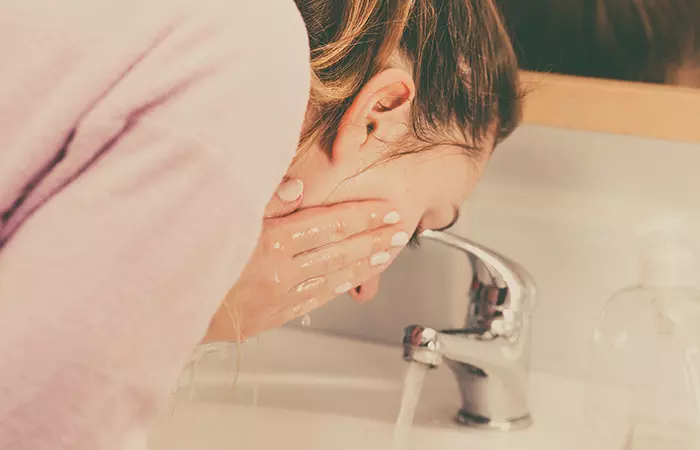
Wash your face with warm water and a gentle cleanser, ideally one that is pH-balanced to prevent over-stripping your skin of needed moisture. Do not over cleanse! Avoid using a cleanser more than twice daily on your skin. Also, avoid using soaps with strong fragrances or moisturizers as these may cause your skin to produce even more oil (1).
You can also incorporate anti-acne products containing salicylic acid, glycolic acid, or benzoyl peroxide into your skin care routine for oily skin as they can provide targeted treatment for your skin issues.
2. Blotting Papers
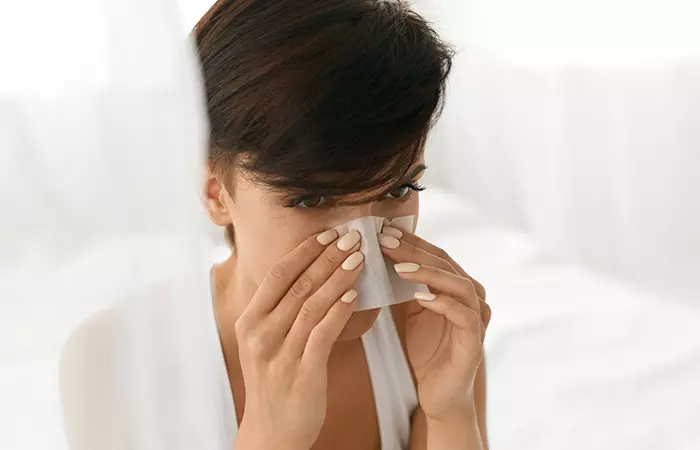
Carrying blotting papers along is a must for those who have oily skin. Instead of washing your face as soon as you see it turning oily, use a blotting paper to blot out the extra oil from the problematic areas of your face. This also helps your makeup stay in place for longer.
Kelsey, a blogger, makes her own DIY blotting sheets. She ran out of blotting papers one day and decided to make them out of tissue paper. She writes, “I remembered I had tissue paper in one of my desk drawers from a birthday present I had received weeks before. I decided to test my theory that it would absorb the oils on my face. To my delight, it did! Theory proved (i)!”
 Quick Tip
Quick Tip3. Honey
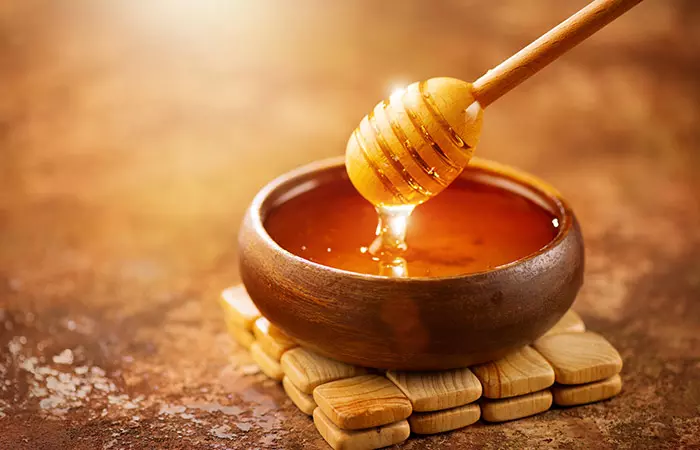
You Will Need
2-3 teaspoons of raw honey
What You Have To Do
1. Wash your hands thoroughly.
2. Using your fingertips, massage raw honey onto your face.
3. Leave it on for 20-30 minutes before rinsing it off.
How Often You Should Do This
You can do this once daily.
Why This Works
Honey acts as a natural emollient. It hydrates your skin and reduces the secretion of oil naturally. Its antimicrobial properties can also prevent acne breakouts (2).
4. Oatmeal
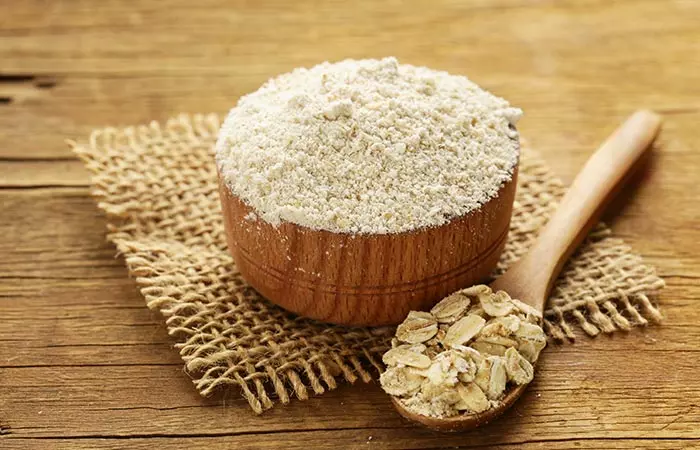
You Will Need
- ½ tablespoon of ground oatmeal
- Water (as required)
What You Have To Do
- Mix half a tablespoon of ground oatmeal with a little water to form a thick paste.
- Apply the paste all over your face.
- Leave it on for 20-30 minutes before rinsing it off with plain water.
How Often You Should Do This
You can do this once daily or every alternate day.
Why This Works
Oatmeal is a powerful ultraviolet absorber that can protect your skin from the sun. It is also a moisturizing, cleansing, and anti-inflammatory agent (3). Oatmeal can help in controlling your skin from producing too much sebum, thus preventing acne. It also reduces redness and irritation. You can add this gentle ingredient to your homemade scrubs for oily skin to enjoy its mild exfoliating benefits.
 Quick Tip
Quick Tip5. Egg Mask
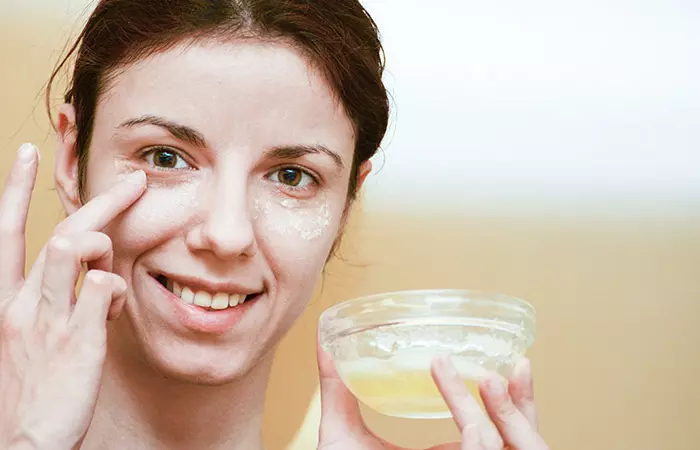
You Will Need
- 1 egg white
- A cotton ball
What You Have To Do
- Take an egg and separate the white from the yolk.
- Whisk the egg white.
- Apply it all over your face and neck using a cotton ball.
- Leave it on for 20-30 minutes.
- Rinse it off with plain water.
How Often You Should Do This
You can do this 1-2 times a week.
Why This Works
Egg whites can help in firming up your skin by stimulating the human dermal fibroblastsi A type of cell that helps in the development of connective tissue and plays a role in preventing the signs of skin aging. to produce more collageni A protein found in the connective tissues, cartilage, hair, and skin that is key in the growth, development, and maintenance of skin. (4). This can help shrink your pores, thus helping with oil control.
6. Lemons
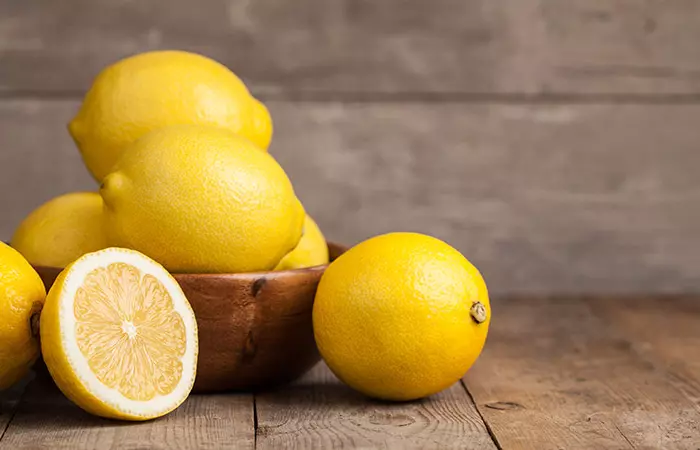
You Will Need
- 2 teaspoons of lemon juice
- 2 teaspoons of water
- 1 teaspoon of glycerin (optional)
- Cotton balls
What You Have To Do
- Mix two teaspoons of lemon juice with two teaspoons of water.
- If you have sensitive skin, add a teaspoon of glycerine to the mixture.
- Apply the mixture to your face with the cotton ball. Leave it on for 20-30 minutes.
- Rinse it off.
How Often You Should Do This
You can do this 1-2 times per week.
Why This Works
Lemons are rich in citric acid, which helps unclog pores, shrink the pores, and controls sebum production. Lemons also possess antimicrobial properties that help kill the acne-causing bacteria (5). You can use it as a natural astringent after you exfoliate the skin.
7. Green Tea
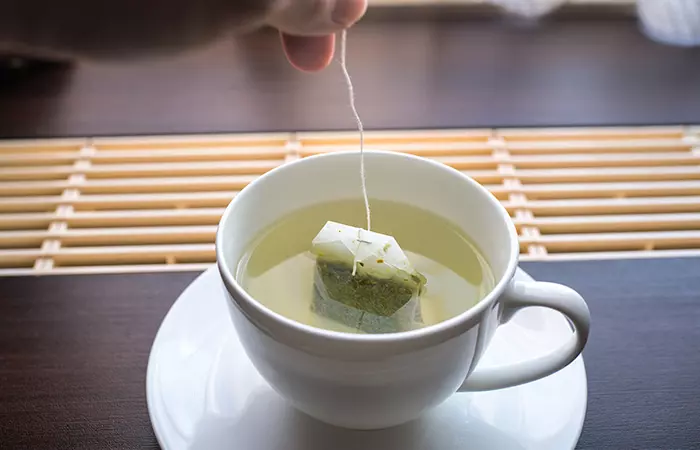
You Will Need
Used green tea bags
What You Have To Do
- Take a couple of used green tea bags and refrigerate them for some time.
- Dab the cold tea bags all over your face.
- Leave the residue on for 20-30 minutes before rinsing it off.
How Often You Should Do This
You can do this once daily.
Why This Works
Green tea polyphenols can help in reducing sebum production and are also beneficial in treating acne (6).
8. Aloe Vera
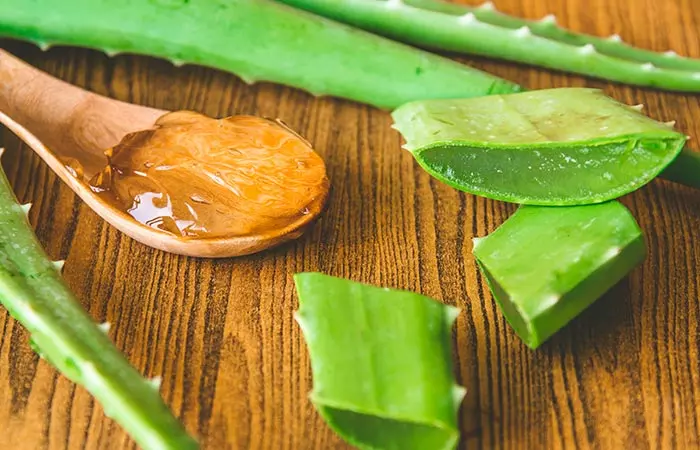
You Will Need
- Aloe vera gel
What You Have To Do
- Apply aloe vera gel all over your face.
- Leave it on for 20-30 minutes.
- Rinse it off.
How Often You Should Do This
You can do this once daily.
Why This Works
Aloe vera exhibits astringent and moisturizing properties that help in toning the skin by reducing the size of the pores (7). This, in turn, can control the oil secreted from your skin.
9. Jojoba Oil
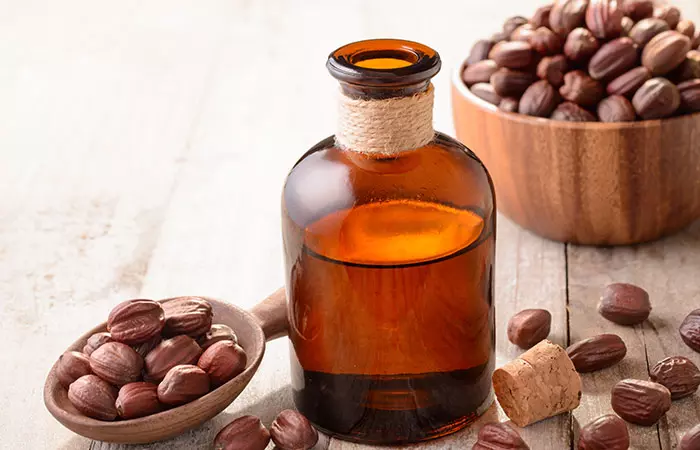
You Will Need
- 1-2 teaspoons of jojoba oil
What You Have To Do
- Wash your hands thoroughly.
- Using your fingertips, apply some jojoba oil to your face. Leave it on for 20-30 minutes.
- Rinse your face with water.
How Often You Should Do This
You may do this once daily.
Why This Works
Jojoba oil is similar to sebum. It tricks your skin into producing lesser oil and prevents acne breakouts (8).
While these remedies work their magic, here are some additional tips that can help prevent oily skin issues altogether.
How To Prevent Oily Skin Issues
- Wash your face twice daily with a mild cleanser and water.
- Opt for double cleansing for oily skin, which helps unclog the pores and remove impurities.
- Use a gentle exfoliant twice a week to remove dead skin cells and prevent clogged pores.
- Use a pH-balanced toner daily.
- Consider using a serum with salicylic acid or niacinamide to control oil and reduce breakouts.
- Choose an oil-free, mattifying sunscreen to protect your skin from UV damage without making it greasy.
- Avoid touching your skin frequently.
- Remove all your makeup before going to bed.
- Keep your hair away from your face as the dirt and oil from it can make your skin oilier.
- Use water-based cosmetics.
- Avoid eating greasy foods and follow a balanced diet for oily skin.
- Drink lots of water to keep your skin hydrated.
While we have covered all the disadvantages of oily skin and how you can tackle it, let’s look at the bright side and check out some of its benefits too!
Benefits Of Oily Skin
- It keeps the skin naturally moisturized and feeling supple most of the time.
- It is said to reduce the appearance of fine lines and wrinkles and helps slow down the aging process.
- The oils may act as a natural barrier against harmful environmental factors like heat, sun, wind, air pollution, etc.
- It has a natural glow and dewy appearance.
- It is claimed to be less prone to skin sensitivity and irritation.
Infographic: 4 Natural Remedies To Control Oily Skin
Sebum is healthy for the skin and helps keep it moisturized. However, when produced in excess, it may clog the pores and cause acne. But worry not – because we have got your back. The infographic below lists home remedies that control excess sebum effectively and help you manage oily skin. Check it out!
Some thing wrong with infographic shortcode. please verify shortcode syntaxOily skin is not easy to manage, and you know how difficult it is to find a perfect product that suits your skin type. The overly active sebaceous glands in your skin make your skin oily and lead to clogged pores and acne breakouts. Genetics, age, climate, etc. can contribute to excess oil production. However, following a proper daily skin care routine with appropriate products, remedies, and targeted ingredients can make your journey easier. So, if you are fed up with excessive oil and shine on your skin, you may try some home remedies to get rid of oily skin. Remember to visit a dermatologist if the issues persist.
Frequently Asked Questions
How can I stop my face from getting oily throughout the day?
Following any of the above remedies and sticking to the tips will help your skin get better with time. Visit a dermatologist or naturopathic doctor to get to the root cause if nothing helps.
What is the best face wash for oily skin?
Face washes meant for acne-prone skin that contain benzoyl peroxide, salicylic acid, or glycolic acid might help control sebum secretion. You can also use any of the mild cleansers that are specially formulated for oily skin that are pH-balanced to avoid over-drying oily skin.
Does drinking water help oily skin?
Drinking water helps in keeping your body well-hydrated. This reduces the need for your body to secrete too much oil (sebum). Aim to consume half of your body weight (in lbs.) in ounces of water per day. For example, a 160lb person would need 80 oz of fluid per day, that’s equivalent to 10 cups.
Does oily skin age faster?
No, oily skin does not age faster. In fact, oily skin is more protected against wrinkles and skin looseness than dry skin (9).
Do oily people look younger?
Since people with oily skin are slower to show the signs of aging, they may look younger than people with dry skin.
Is vitamin C good for oily skin?
Vitamin C is good for oily skin due to its antioxidant and anti-inflammatory properties. Since oily skin is more prone to acne, using vitamin C will help treat the inflammation and reduce oxidative stressi An imbalance between free radicals and antioxidants, which can increase the risk of acne and skin aging. associated with it (10). It may also help spot-treat your skin, improving the skin’s complexion.
Is retinol good for oily skin?
Retinol may help reduce facial pore size and reduce the production of sebum. Thus, retinol could be good for oily skin (11).
Illustration: How To Get Rid Of Oily Skin - 10 Effective Home Remedies + Prevention Tips
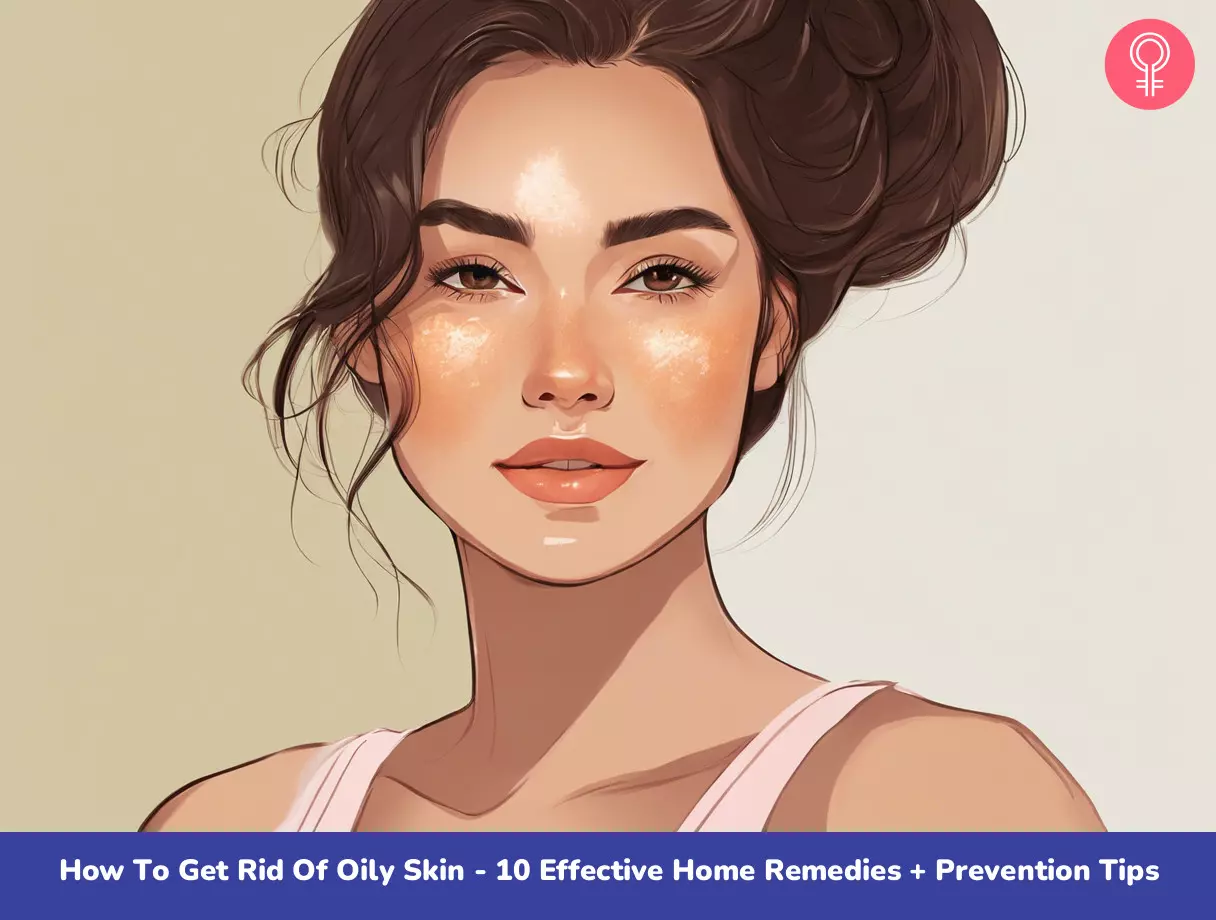
Image: Stable Diffusion/StyleCraze Design Team
Learn how natural remedies help treat oily skin and acne! Check out this video to know how to get rid of excess oil and clear up your skin with simple ingredients from your kitchen.
Personal Experience: Source
StyleCraze's articles are interwoven with authentic personal narratives that provide depth and resonance to our content. Below are the sources of the personal accounts referenced in this article.
i. DIY: Oil Blotting Sheetshttps://kelseylenay.blogspot.com/2012/03/diy-oil-blotting-sheets.html
References
Articles on StyleCraze are backed by verified information from peer-reviewed and academic research papers, reputed organizations, research institutions, and medical associations to ensure accuracy and relevance. Read our editorial policy to learn more.
- “The effect of a daily facial cleanser for normal to oily skin on the skin barrier of subjects with acne.” Cutis, US National Library Of Medicine.
- “Honey in dermatology and skin care: a review.” Journal of Cosmetic Dermatology, US National Library Of Medicine.
- “Colloidal oatmeal: history, chemistry and clinical properties.” Journal of Drugs in Dermatology, US National Library Of Medicine.
- “Reduction of facial wrinkles by hydrolyzed water-soluble egg membrane associated with reduction of free radical stress and support of matrix production by dermal fibroblasts” Clinical, Cosmetic and Investigational Dermatology, US National Library Of Medicine.
- “Phytochemical, antimicrobial, and antioxidant activities of different citrus juice concentrates” Food Science & Nutrition, US National Library Of Medicine.
- “Green Tea and Other Tea Polyphenols: Effects on Sebum Production and Acne Vulgaris” Antioxidants, US National Library Of Medicine.
- “ALOE VERA: A SHORT REVIEW” Indian Journal of Dermatology, US National Library Of Medicine.
- “Anti-Inflammatory and Skin Barrier Repair Effects of Topical Application of Some Plant Oils” International Journal of Molecular Sciences, US National Library Of Medicine.
- “Survey on skin aging status and related influential factors in Southeast China” Journal of Zhejiang University. Science. B, US National Library Of Medicine.
- “Vitamin C in dermatology” Indian Dermatology Online Journal, US National Library Of Medicine.
- “Oily Skin: A review of Treatment Options” The Journal of Clinical and Aesthetic Dermatology, US National Library Of Medicine.
Read full bio of Dr. Laura Belus
Read full bio of Shaheen Naser
Read full bio of Ramona Sinha
Read full bio of Swathi E






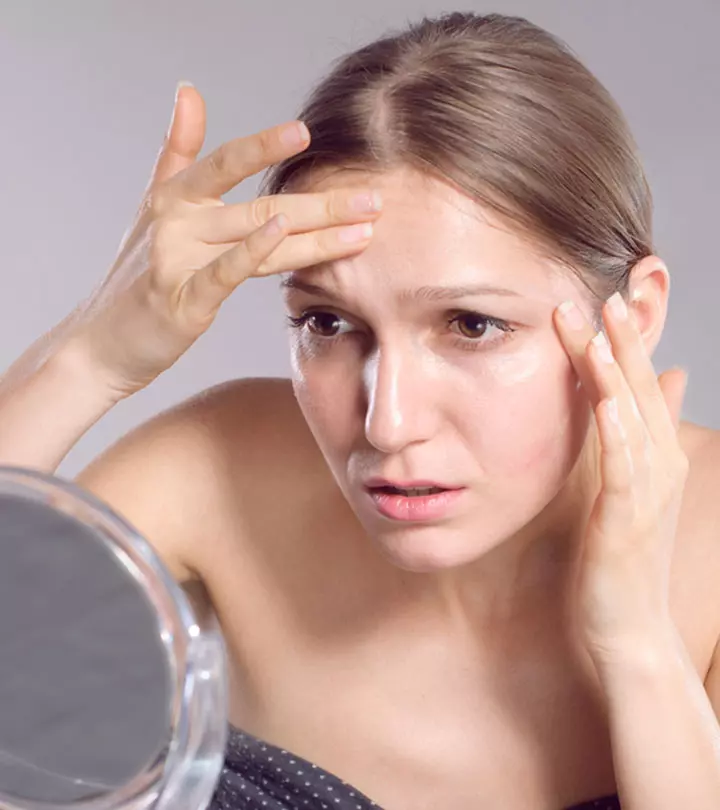
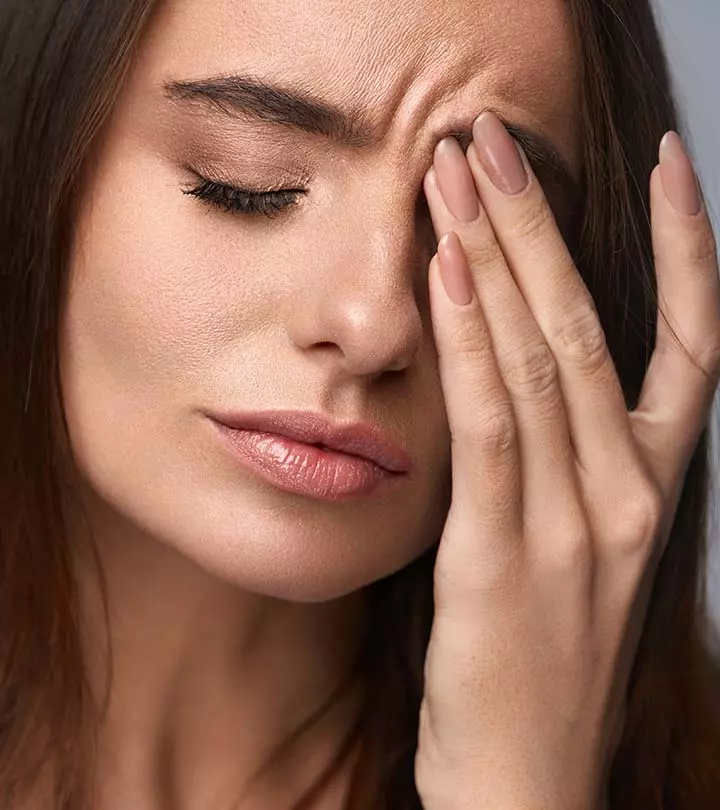
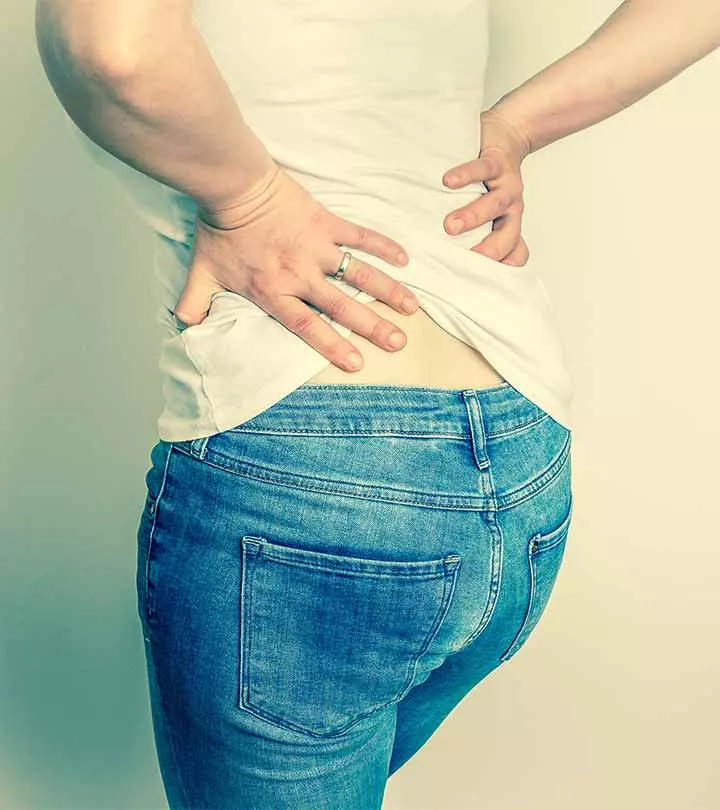
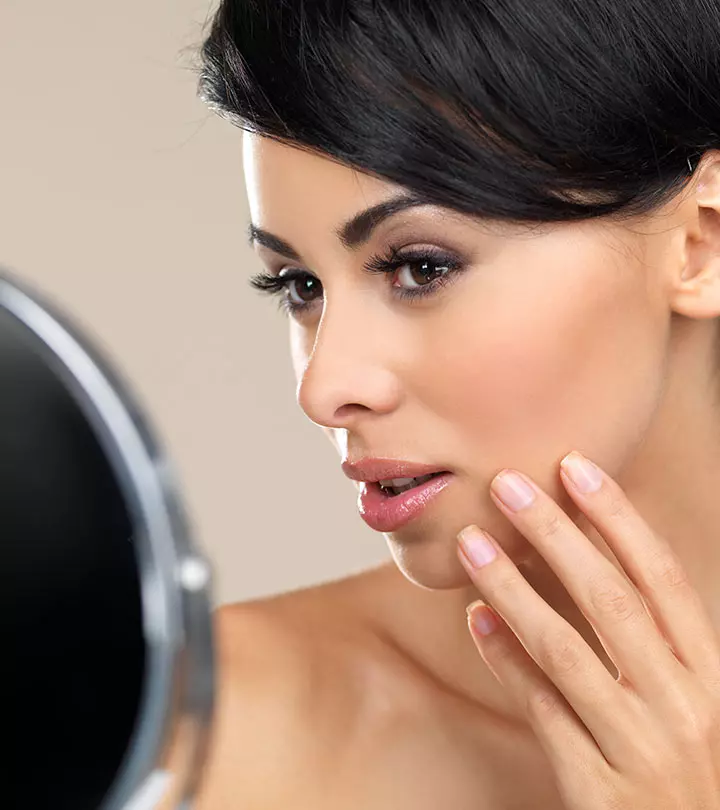
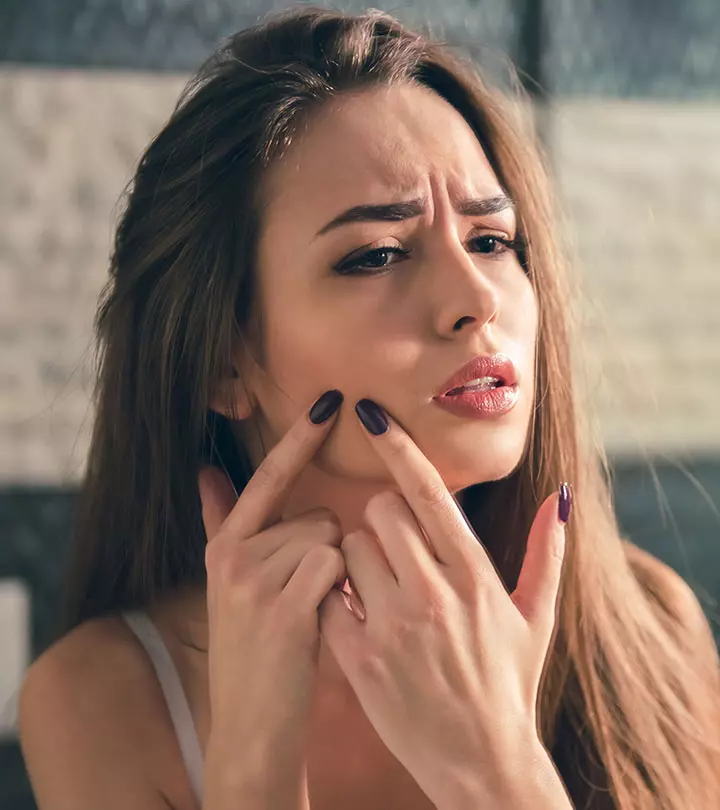


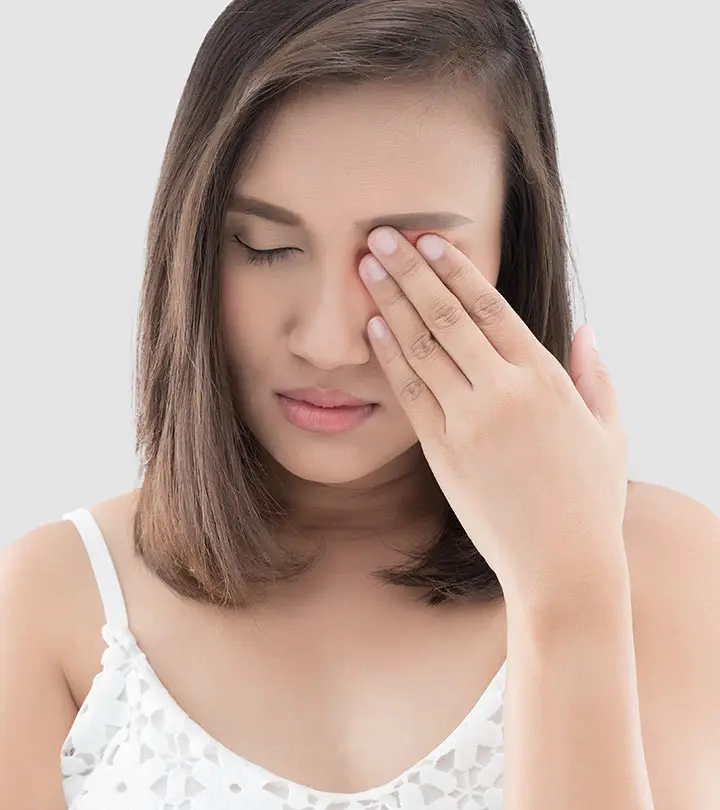
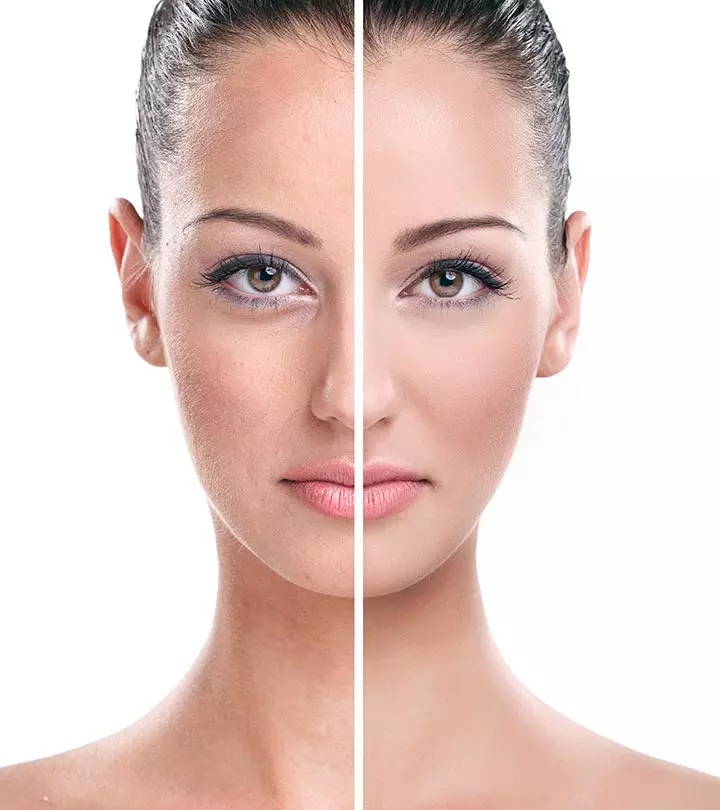
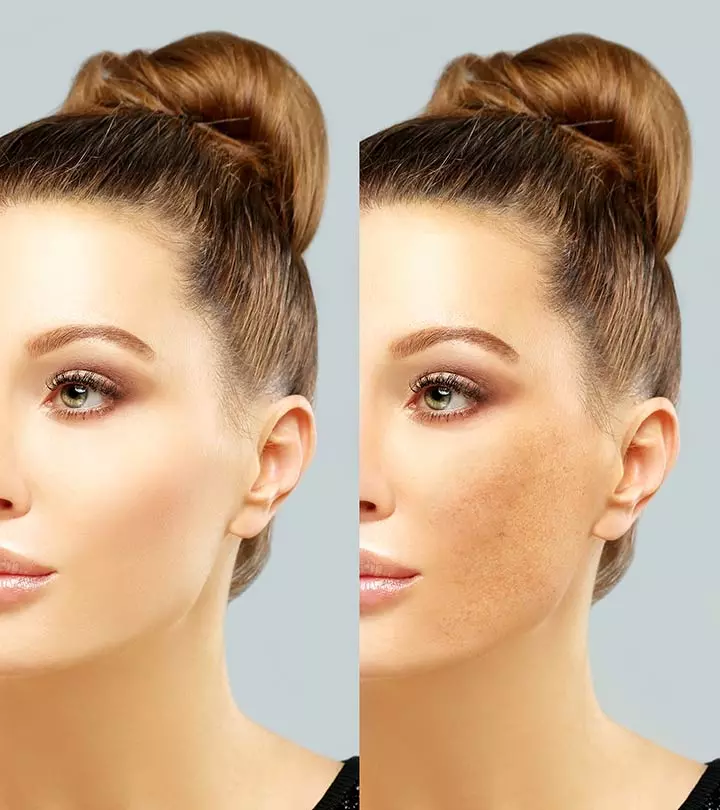
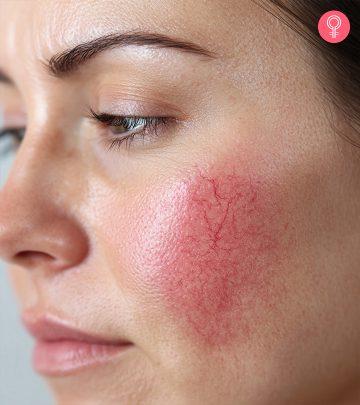


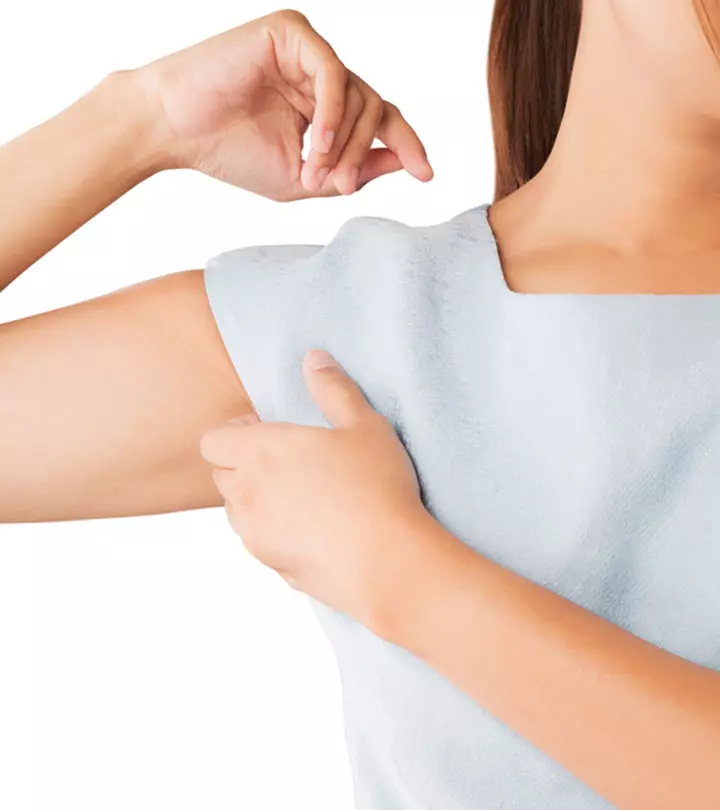
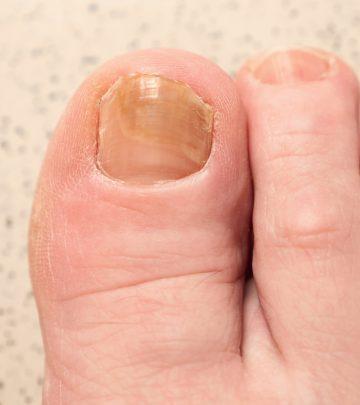
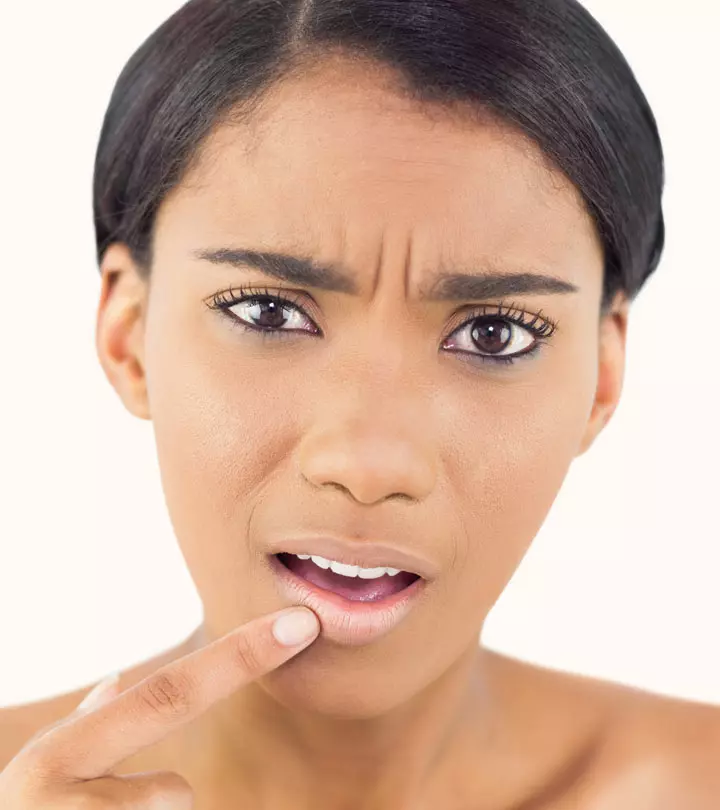
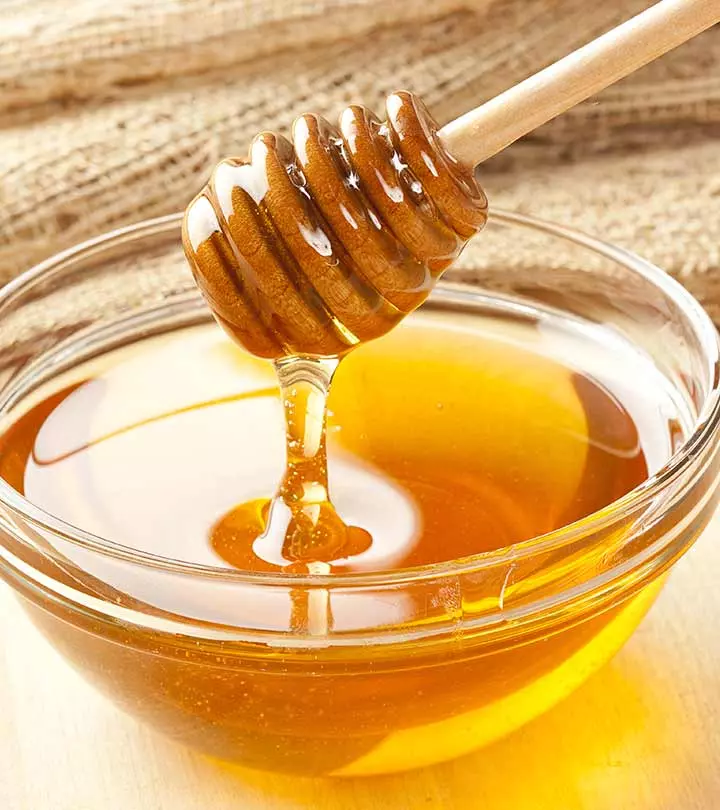
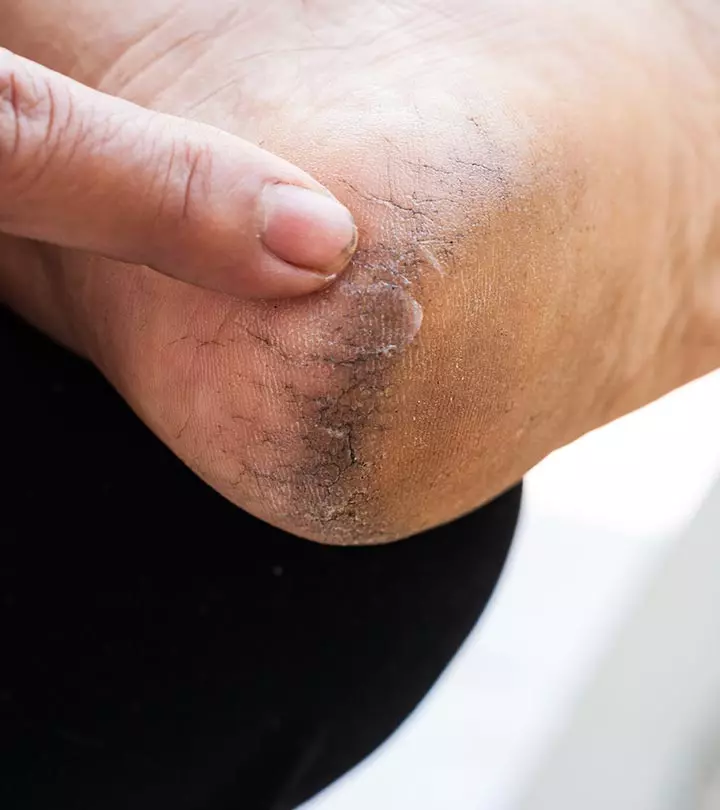
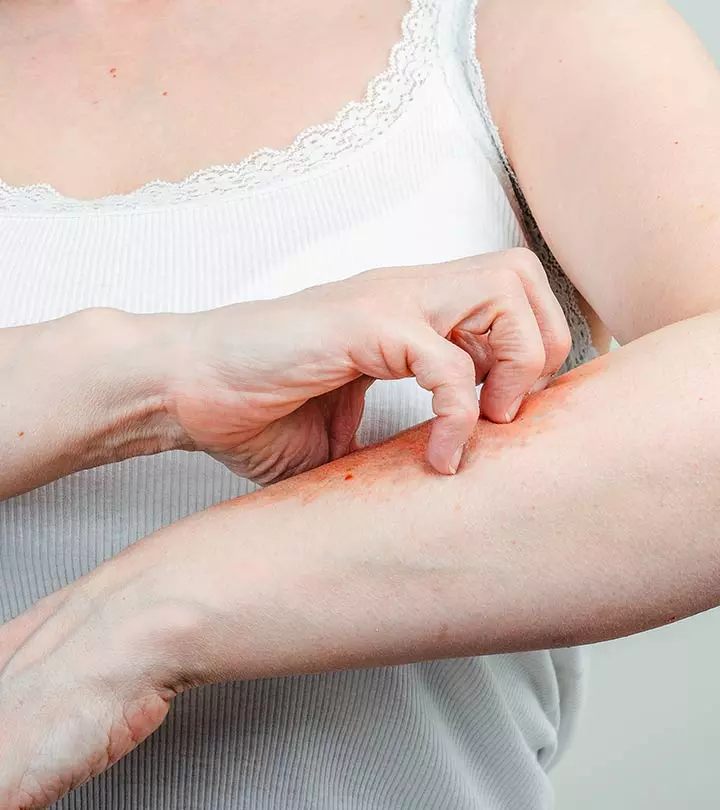
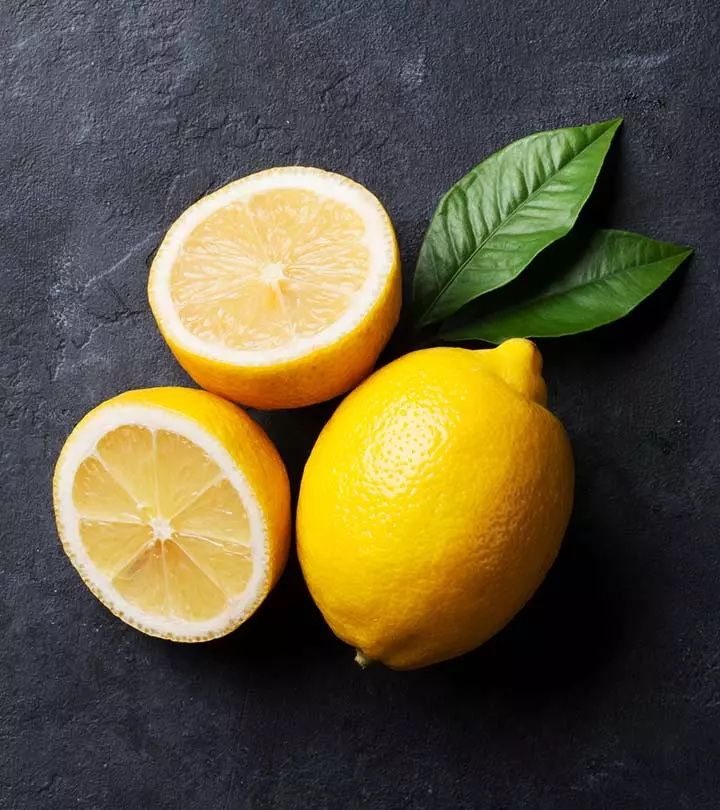
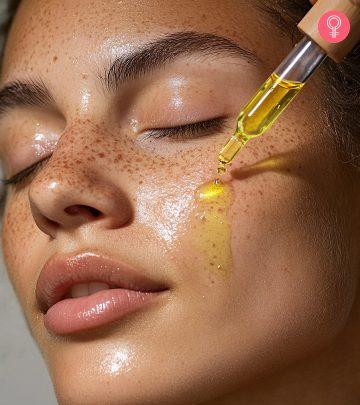
Community Experiences
Join the conversation and become a part of our empowering community! Share your stories, experiences, and insights to connect with other beauty, lifestyle, and health enthusiasts.